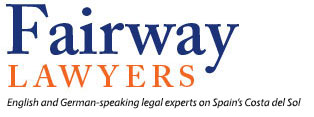One of the most common and most problematic situations which arise nowadays is the conflict among several joint owners of a property.
The most typical case is the non married couple who purchases a house and due to subsequent disagreements starts living independently from each other.
What happens if Bill (owner of 50% of the property according to the deeds) gets fed up of the property and wants to have it sold to get “his part” back, of course against Grace’s opinion?
And what if Grace had paid the full investment on the property (price and costs!) and Bill had not put a cent?
Is there any compensation to the “improvements” made by Bill, who built himself or paid for the pool which was made afterwards?
Can one of them force the others to purchase his/her percentage?
All these examples are taken from the day to day praxis and they can give a broad idea of the complexity of these situations, which can be even more difficult in some special cases (i.e. where there is the so called domestic violence, divorce proceedings with children involved,…).
In general terms, it is not possible to force the other joint owners to purchase your percentage if you want to get out, and in many cases the parties are completely unable to reach an agreement as to the price.
Consequently the Spanish law establishes a solomonic solution: when there is no agreement as to the use of the property, and the property cannot be legally divided, any joint owner can force the sale of the property at auction through the court, even against the other joint owners’ wish.
Out of the net profit of the sale, each joint owner would receive the same percentage as each of them holds in the property.
As to the improvements made in the property, the one who made them is merely entitled to get just the refund of the costs (if they are actual useful improvements, never if they are just decorative), but we would like to underline that there is usually dispute as to the valuation of such improvements.
However, the standard solution (sale at auction through court) is not totally effective: what if there are no bets for the market price and the property is sold for less than the price it was paid for? In such case – which is not unusual at all – both parties would have loses, as they would receive less than they paid for the property. Moreover, the sale at auction is not always fair either.
In the example mentioned above (Bill & Grace), Bill has not put any moneys in the purchase of the property but he owns a 50% on the Deeds and therefore he is still entitled to force the sale at auction and get the 50% of the net profit.
In such a case, the sale would be a profit just to Bill, and Grace would probably regret allowing Bill’s name going into the deed.
And finally, if Bill paid for the pool and this resulted in a higher sale price, he would get the refund of the pool costs (provided he can prove them) and the 50% of the net profit, whilst Grace – who probably has not cared about improvements – would get a higher value for her 50% without doing anything at all.
For those reasons, it is always highly advisable to seek proper advice before the investment is made, or at least shortly after the purchase of the property, when the personal relationships among the owners are still good, and sign an agreement which would cover all these situations properly and establish appropriate compensations, limits and proceedings for the sale of the property. By doing this, all the concerned parties will save lots of money in legal fees in the future, if the worst came to happen.
Finally, we would like to underline that drafting such agreement is a task for a professional skilled in Spanish law.
It is not advisable at all to do this privately or with a foreign solicitor not skilled in Spanish law, as you would be taking the risk of the agreement being completely useless in the moment it is needed.

